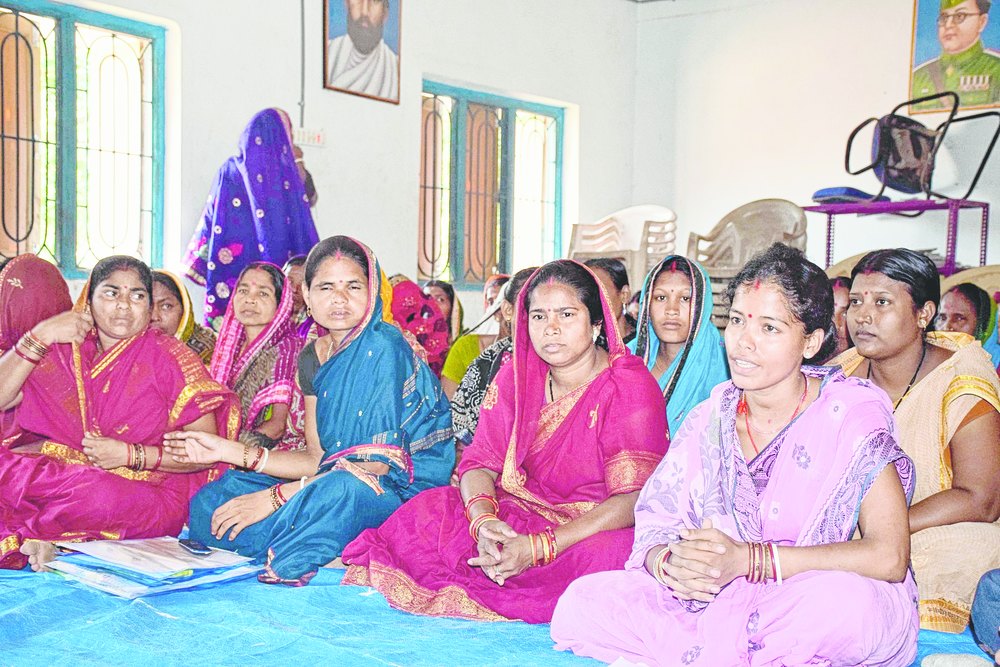
Bhubaneswar, May 9: Jayanti Maitee of Kankana village in Ersama block of Jagatsinghpur district was one of the poorest people in the area. The 41-year-old woman was facing a lot of hardships in maintaining her family of four.
Her husband Jaydev Maitee was trying to support the family by working as a daily wage labourer. The couple was not in a position to provide education to their two children. But all that is history now.
After joining a local self-help group (SHG), her condition started to change. The SHG gets financial as well as logistical support from Tripti (Targeted Rural Initiatives for Poverty Termination and Infrastructure), a poverty termination programme run by the state government with full support from the World Bank.
Jayanti is one of the many women who reside in the Ersama block that was worst affected by the super cyclone of 1999. They not only survived the nature's wrath but have also successfully empowered themselves through the poverty termination programme.
After joining the SHG, she took a loan of Rs 5,000 and started a fishery business in a small tank near her house. Now, she has managed to leap forward and leads a self-sustainable life.
"After the fishery, I invested my profits in other activities and took some more loans from the SHG at 12 per cent interest. As I indulged in other farming and non-farming activities, I managed to save money and now I have repaid almost 80 per cent of my loan," said Jayanti.
Her two kids are going to school. Her son appeared for Class X examinations this year while her daughter is studying in Class VII.
Jayanti, who was identified by the World Bank as one among the extremely poor and vulnerable women, is also supported by the project for nutritious food supply under 'Mo Badi' or kitchen garden programme. She has her own garden where she now grows vegetables and fruits for her family.
The Tripti project provides funds and technical support to these poor people through the gram panchayats. They transfer money to needy people and provide all kinds of support to make them empowered socio-economically. The five-year programme that is in its final stage is currently under way in 10 coastal districts covering 38 blocks and 1,020 gram panchayats.
The women also carry out many social activities such as teaching and providing better facilities to the disabled persons of the villages and standing up against social evils such as domestic violence. They have also started anti-liquor movements.
Jhili Mandal, a woman in the area was a victim of domestic violence by her in-laws. She was sold off in Delhi. The local SHG stood for her and came to her help. They have managed to get a piece of land for the woman from her in-laws and have provided all assistance to her and she is leading a normal life.
These empowered women had stood against many evil practices in the area. When the upper caste people did not allow the lower castes' entry into the local temple, the women vehemently opposed the misguided practice. The local police and senior members of the village intervened. "They decided that there would be no bar on entry of anyone into the temple. That is a success story of our SHG," said Sita Jena, a member of the self-help group.
Samik Sundar Das, senior rural development specialist of the World Bank, said the project has yielded good results, as it has successfully empowered women in poor and extremely vulnerable groups.
"Even though the project ends in June, it has provided strong foundation to these SHGs and the individuals can carry forward the good work," said Das.
The project aimed at strengthening economic institutions of the poor, providing access to financial services and increasing income through enhanced livelihood options.










